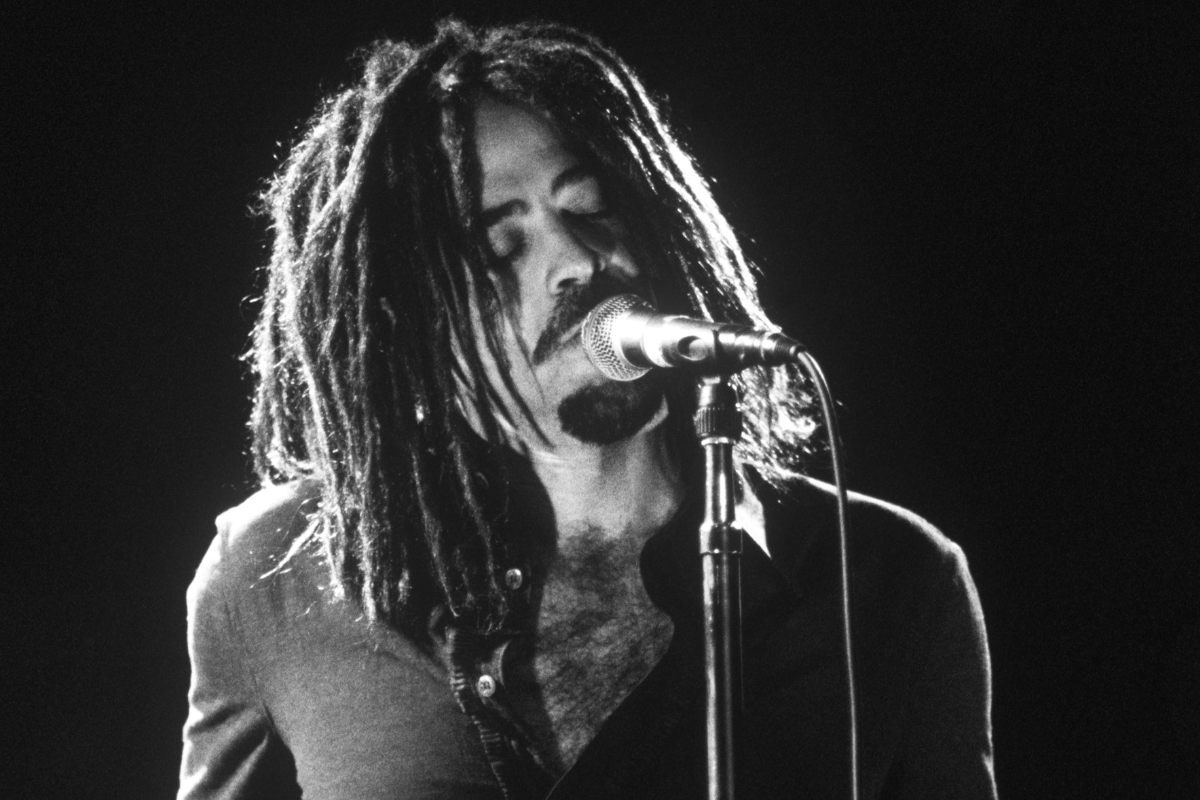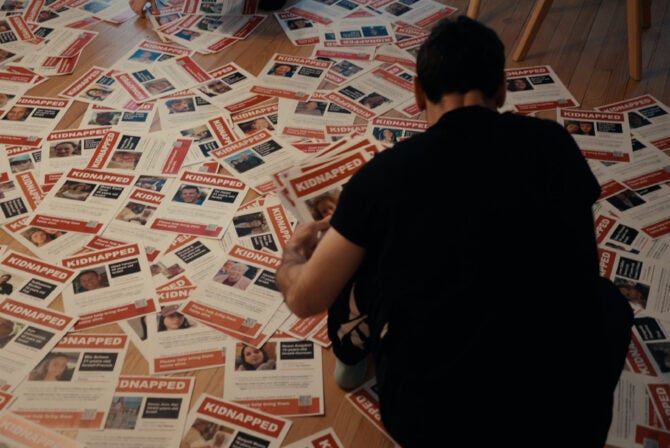There’s a new Counting Crows documentary out, which is relevant to all fans of the band and of Jewish frontman and songwriter Adam Duritz. “Have You Seen Me Lately” had its world premiere at the Tribeca Film Festival in early June and is now on the festival circuit, with an HBO release coming later this year.
While the band was super famous in the 90s, they’ve since eased into a “continuing to release music that people continue to listen to” kind of career. Their newest full-length record, “Butter Miracle, the Complete Sweets,” came out in May, 11 years after their last (though an EP, “Butter Miracle, Suite One,” was released four years ago). They’re touring the United States through the end of August, then shifting to Europe in the fall.
With the album, the tour and the documentary, we’re having a bit of a Counting Crows moment. Though they are most definitely a band, with all the musical and personal complexity that goes with collaboration, Duritz, as the writer and singer of their songs, has always been the face of the endeavor.
Now is a perfect time to revisit the legacy he has created so far: committed and compelling musician, big dreamer, perfectionist and introverted icon. He’s also Jewish.
Born in Baltimore to Gilbert and Linda Duritz, Adam is of Russian Jewish descent and was raised in a Reform Jewish household. His father was a military doctor, and his family moved frequently; California’s Bay Area was as close as he came to home turf.
The frequent starting over contributed to a sense of nonbelonging that Duritz has had to contend with throughout his life. A particular mental illness exacerbated the feeling. Misdiagnosed at first with bipolar depression, he ultimately received a diagnosis of depersonalization disorder.
He kept these struggles under wraps for a long time, not wanting his personal life and mental health to become tabloid fodder (a circumstance he’d dealt with early in his career). But for the last 10 years and change, he’s been speaking freely about them. Dealing with the trials of the music world, he explains, has been easy in comparison to wrestling with his mental health.
At age 18, in 1982, Duritz traveled to Israel with a group from his high school; they worked at Kibbutz Nir Oz, in the south of the country. The kibbutz was attacked by Hamas years later, in 2023.
The year before the attack, Duritz had returned to Israel to tour with the band, having declared his personal attachments to the country for many years prior. As the band got ready for their Israeli shows, he told Ynet News that his time at Nir Oz “taught me what work is. To wake up at the break of dawn every day, to work with your hands.”
Speaking to the Jerusalem Post, also in 2022, Duritz offered hilarious reflections on chanting the haftorah at his bar mitzvah. With the joking (but not totally joking) bravura that he has expressed throughout his career, he recalled his experience in tackling the not-so-catchy musical assignment: “I’m sure I sang the hell out of it. Not that there’s a great tune there. There’s nothing to really dig into. But I’m sure I made it my own.”
The band’s current tour does not, due to the unsafe and unstable current circumstances, include Israel. In May, Duritz expressed his regret to the Jewish Telegraph that they can’t play there this time out. In addition to his widely shared horror and sadness regarding the war and the losses overall, he feels a grief over Nir Oz that is sharpened by memories of his time there.
Regarding antisemitism, he astutely links it with prejudices against minorities across the planet and throughout history. “Antisemitism is a constant, but it’s not just antisemitism, it’s anti-whoever,” he said in the Telegraph interview. “We love, as humans, to pick on a minority, whether that minority is black people, brown people, yellow people, gay people, trans people… That’s been going on for the entirety of recorded history. Humans love to blame everything on somebody else, and we’ve been doing it forever. As Jews, we’ve just been around a long time, and there have never been very many of us, so it makes us ripe for that shit.”
Whatever roads, literal or otherwise, that Counting Crows might take, Adam Duritz will continue to abide by his own assessments. If you love the band, he’s grateful (and he thinks you have good taste); if you don’t, then you don’t, but his creative life will not be swayed.
“I don’t know if we’ll ever be a big band — a really big band — again,” he said to GQ recently, in an expansive profile that demonstrates, at the least, a good amount of continued interest in their work. “But every time we make a record, I think we will, because I’m so proud of them.”








